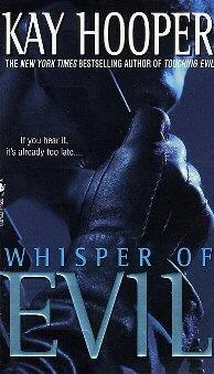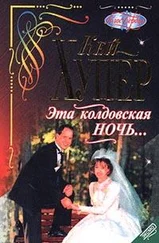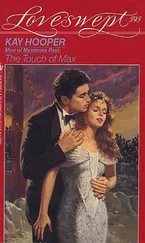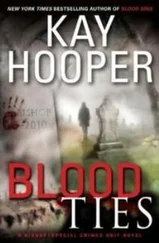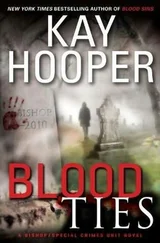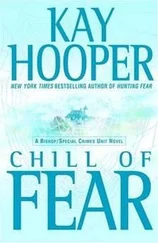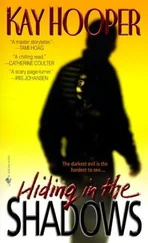"We have the chair and rug in the evidence room. They were both — well, they were evidence."
Shelby grimaced. "Oh."
"You did want to do this," he reminded her.
"I know, I know. Look, didn't you say you concentrated mostly on some secret hiding place? Because of the blackmail thing?"
"It seemed most likely."
"And didn't find anything. So let's suppose there is no secret hiding place because there aren't any secrets. Given that, there has to be something here — probably in plain sight — to prove George wasn't a blackmailer."
"You seem very sure of that."
"I am. George was not a blackmailer."
Justin was still astonished at himself that he had confided in Shelby about the little black notebook, but since her reaction had been instant and definite it had at least served to underline his own increasing doubts. Still, he said, "We have the copies of birth records from the courthouse to go through; maybe they'll tell us something."
"I imagine they will," Shelby said absently as she stood gazing around the apartment with a frown. "There are some people who thought George was just nosy, but he was not a man to waste his time. If he was looking through those records with the intensity Ne — I believe I saw, then it was because he was after something definite."
Justin's eyes narrowed slightly, but he didn't comment on what had sounded like a near slip of the tongue. Instead, he said, "You can take it from me there's nothing even remotely helpful in the bedroom. Unless you find old issues of Playboy suspicious."
"How about in here? What's in the desk?" Not a large desk, it was the sort of piece some people used in the more public areas of their homes to contain the seemingly endless paperwork necessary in maintaining a household.
"Mostly private financial information. Checkbook, bank statements, that sort of thing. The serious records he kept at the bank, but there's an investment ledger in the name of his ten-year-old son — Caldwell was building up a college fund, according to his widow — and paperwork concerning a few other personal financial deals. Nothing jumped out."
"Maybe it'll jump out at me," Shelby said, sitting down at the desk and opening a drawer.
Justin watched her for a moment. "This is just an excuse to snoop, right?"
She smiled without looking at him. "Don't be ridiculous. There's a little box of receipts and stuff here; did you go through it?"
"I think Matt Thorton went through that one." He recalled Kelly's warning and felt suddenly uneasy. "But that was early on, so I probably should go through it now just to make sure there's nothing helpful in it."
Shelby handed over the small cardboard box, and Justin carried it to the couch and sat down. What he found when he opened it was, as she had noted, mostly odds and ends. There were several movie and raffle ticket stubs, a few coupons for free car washes and lunch specials, and numerous receipts for the current year that he might have been considering as possible tax deductions.
There was also one small piece of paper obviously torn from a pocket notebook. A handwritten I.O.U. for a hundred dollars — signed by Luke Ferrier.
Had Matt Thorton missed it by accident? Missed the significance of it?
"Shelby?"
"Yeah?" She was frowning down at the ledger open before her on the desk.
"Did Caldwell play poker?"
"Dunno. I'm sure I could find out. Why?"
"If he did, would he have played with Luke Ferrier?"
She looked at him, still frowning. "Well, remember that none of us knew Ferrier had a gambling problem. So I wouldn't be surprised. I doubt George would have made a habit of playing, though; he wasn't much into risking his money."
"How sure are you of that?"
"Pretty sure."
"And if Ferrier had owed him a hundred bucks from some kind of gambling debt?"
Shelby lifted an eyebrow. "You mean would George have tried to get his money back if Ferrier welshed? No, probably not. A hundred bucks wouldn't have meant much to George. But it would have convinced him not to take any more of Ferrier's markers, or probably just not play with him again. He was a fool-me-twice-shame-on-me kind of guy."
It made sense to Justin. He stared at the little piece of paper in his hand, brooding.
So Caldwell had, in all probability, played poker or otherwise gambled with Luke Ferrier at least once; both Peter Lynch and Randal Patterson had been clients at his bank. It wasn't enough of a connection between the four men, Justin thought, to explain the three earner murders — but what if it explained, at least in part, George Caldwell's murder?
What if the man everyone called too inquisitive for his own good had gotten curious about the three murders, and through his own associations with the dead men either knew or suspected something else that had connected them? And what if his search for the information or verification of his suspicions was what had really gotten him killed?
Lots of what-ifs. And no way for Justin to know if he was even on the right track, dammit.
"Hey," Shelby said.
"What?"
"That unexplained income of George's. What were the dates of the deposits?"
Justin got out the little black notebook he'd been carrying with him and read off the dates of the supposed blackmail payoffs listed there.
"Matches," Shelby said. "Every one of them."
"In the ledger? So how're they recorded?"
"Wait a minute, he's got some kind of private code here___" Shelby frowned and rechecked several pages, then nodded. "Oh, I see. It looks like he had transferred some rental property into his son's name about three years ago, and ever since then he was depositing the income into that account as part of the college fund he was putting together."
"Perfectly innocent," Justin said. "Told you. George was no blackmailer." Quietly, Justin said, "So why did he have to die?" Shelby leaned back in the desk chair and looked at him steadily. "If he wasn't a blackmailer, if he didn't have some other deep, dark secret — then he must have been a threat to the murderer. Knew something, maybe. So he had to die. That's the only possibility that makes sense."
"And the murderer would then have been left with a killing he badly needed to connect to the others so we wouldn't start looking for a motive specific to that crime."
Her voice as steady as her eyes, Shelby said, "By fabricating so-called evidence of blackmail. Which is a good argument for a cop being involved. It would have been fairly easy for a cop with at least some access to Caldwell's bank accounts to spot the regular deposits and put together that notebook to make Caldwell's murder fit the pattern."
"Easy enough," Justin agreed. "And if you couldn't find information on others he might have blackmailed, it wouldn't be all that surprising. Most of the other cops probably wouldn't even have looked very hard to find evidence that George really was a blackmailer. I mean, after all, we're beginning to expect dark secrets to surface after one of these murders. That made it easier for the murderer."
"Which brings us back to the big question," Justin said. "Why did George Caldwell have to die?"
Nate McCurry felt increasingly uneasy as the day wore on, and he wasn't entirely sure why. He had the nagging idea that at some point during the long day he had seen or heard something he hadn't paid enough attention to at the time, something important.
By the time darkness fell, he was literally pacing the floor, checking the security system on his doors and windows repeatedly, and wishing he didn't live alone. And when the phone rang, he nearly jumped out of his skin.
He looked at the instrument for a moment as though it were a viper ready to strike him, then laughed shakily and picked up the receiver. "Hello?"
Читать дальше
